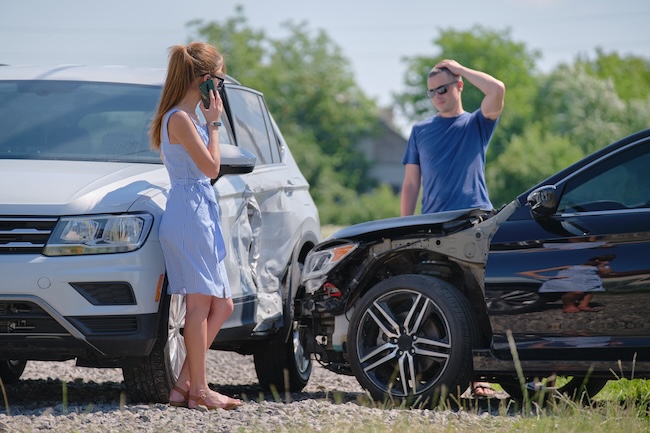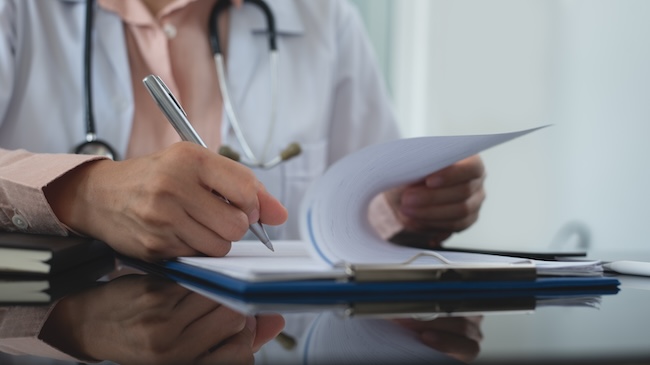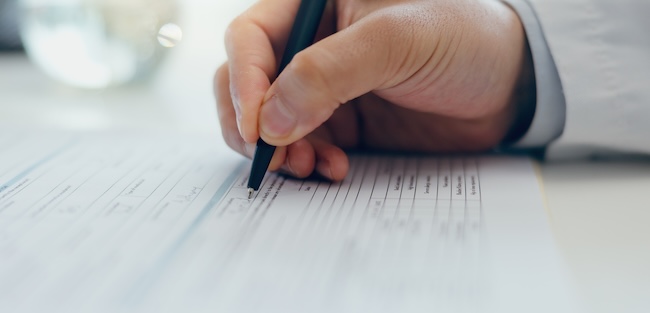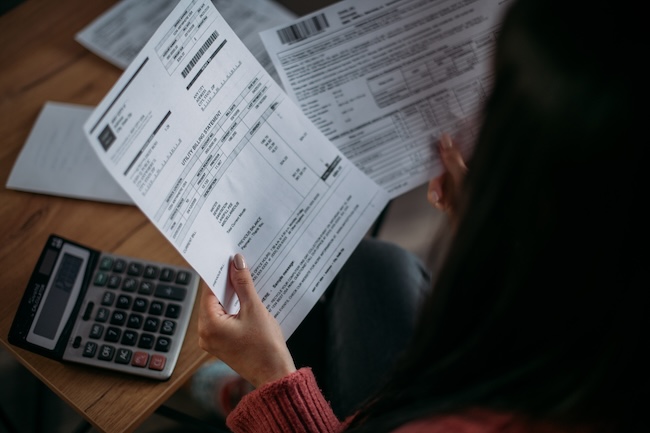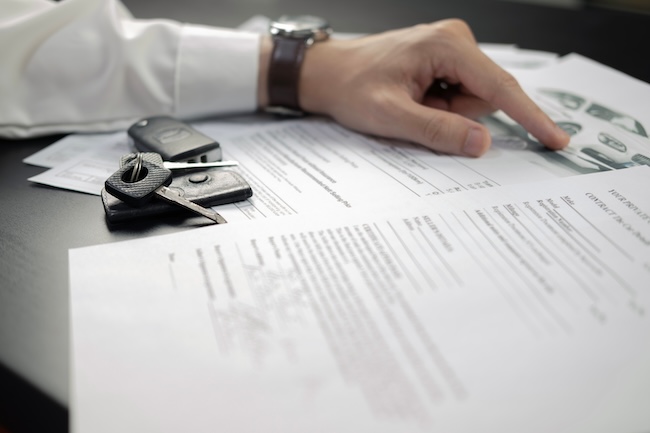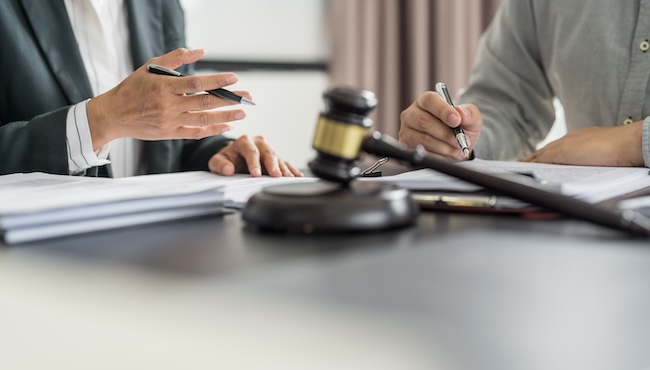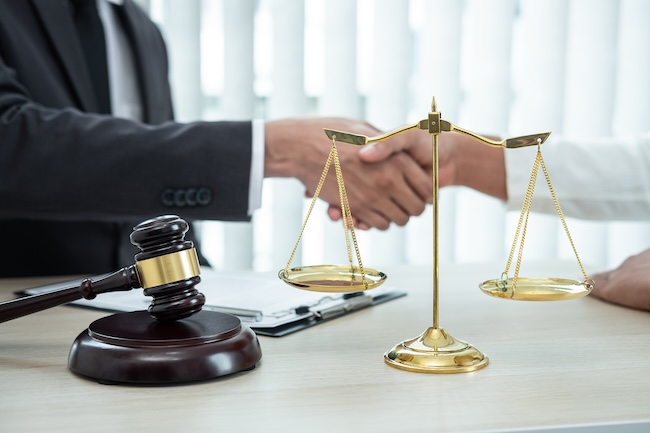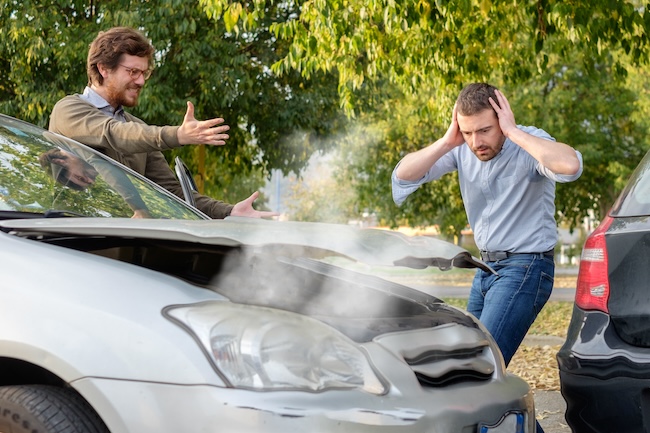What Documents Do I Need to Support My Car Accident Claim?
Gathering the right documents is crucial to building a strong car accident claim. Accurate documentation not only strengthens your case but also helps ensure that you receive fair compensation for medical expenses, lost wages, property damage, and pain and suffering.
With the assistance of an experienced car accident lawyer, you can ensure that every piece of evidence is organized and effectively presented. This guide outlines the essential documents you need to support your claim and how The Money Team Law Firm’s car accident attorneys can help you every step of the way.
Accident Scene Documentation
Photos and Videos of the Accident Scene
Photos and videos taken immediately after a car accident are invaluable in supporting your claim. Clear, comprehensive visual evidence captures the physical details of the accident, creating a visual record of the scene that can reveal important factors contributing to the collision.
These images help paint an accurate picture of the circumstances surrounding the accident and can be instrumental when negotiating with insurance adjusters or presenting your case in court. Here’s what to capture and why it’s important:
Vehicle Damage from Multiple Angles
Capture detailed images of the damage to each vehicle involved, from different angles and distances. Close-up photos of dents, broken parts, shattered windows, or bent frames are useful for showing the severity of the impact. Wide-angle shots that show the damage relative to the position of each vehicle provide additional context, helping to establish the direction and intensity of the collision.
Photos like these are critical for establishing the force of impact, which can support claims for injury severity and vehicle repair costs.
The Overall Accident Scene
Document the entire accident scene, capturing details that might be missed in close-up shots. Include:
- Skid marks and tire tracks, which can indicate braking distance and the path of each vehicle before impact.
- Traffic signs or signals nearby, which could provide context for the flow of traffic and any potential violations.
- Road conditions, such as wet or icy surfaces, debris, or uneven pavement, which may have contributed to the accident.
- The position of vehicles, as they were immediately following the collision. This shows how each vehicle came to rest and can be critical in reconstructing the accident sequence.
These broader photos add context to your claim, illustrating how environmental and road conditions may have played a role in the accident.
Visible Injuries Sustained by You and Any Passengers
Document any visible injuries as soon as possible. This includes cuts, bruises, scrapes, or swelling that you or any passengers sustained in the accident. While many injuries may seem minor initially, documenting them visually is crucial, as even small injuries can lead to complications or longer-lasting damage.
Clear, time-stamped images of visible injuries provide direct evidence of physical harm, supporting claims for medical expenses and pain and suffering. As injuries can evolve over time, documenting their appearance early on is essential.
Taking comprehensive photos and videos immediately after the accident ensures that you have strong visual evidence to support your claim, illustrating the accident’s impact in ways that written reports may not fully convey.
Police or Accident Report
A police report is one of the most critical pieces of evidence in any car accident claim, as it provides an official account of what occurred. Law enforcement officers are trained to assess accident scenes objectively, and their report can serve as a foundation for your case. Here’s what the police report typically includes and why it matters:
Official Observations Made by Law Enforcement
The responding officers document their observations of the accident scene, including vehicle positions, weather conditions, and any apparent violations of traffic laws. This impartial documentation is essential, as it offers an objective view of the scene immediately after the incident.
Police reports often highlight factors that may not be immediately visible to those involved in the accident, such as road debris, weather conditions, or signage issues, which may have contributed to the collision.
Witness Statements
Police officers collect and record statements from anyone who witnessed the accident. Witness statements add credibility to your claim by providing unbiased accounts of the events. Witnesses may offer insights that support your version of the events, and their statements within the police report serve as a formal record of their testimony.
Having witness statements included in the official police report can significantly strengthen your claim, especially in cases where fault is disputed.
Initial Fault Determination
In many cases, the police report may include an initial determination of fault based on the officer’s assessment of the scene and interviews with those involved. Although this determination is not legally binding, it carries substantial weight in insurance negotiations and legal proceedings.
If the officer attributes fault to the other driver, it supports your claim and can streamline the process of securing compensation.
Obtaining a Copy of the Police Report
You can request a copy of the police report from the local law enforcement agency that responded to your accident. An experienced car accident lawyer will use the police report as foundational evidence to build your case, referencing official details that reinforce your account and address any disputes about liability.
Witness Statements and Contact Information
Witness statements from individuals who saw the accident are invaluable assets in a car accident claim. These statements provide an unbiased, third-party perspective of what happened, adding strength to your claim and providing additional support in disputed cases. Here’s how to gather and use witness information effectively:
Gathering Names and Contact Information
As soon as possible after the accident, collect the names and contact information of any witnesses present at the scene. This includes phone numbers, email addresses, and, if possible, mailing addresses. Your car accident lawyer may contact these witnesses later for additional statements or testimony, so having accurate contact details is crucial.
Obtaining Brief Statements on the Scene
If witnesses are willing, ask them to provide a brief statement of what they saw. Focus on details such as:
- The sequence of events they observed
- Any traffic violations they noticed
- Observations of driver behavior, like speeding, erratic movements, or distracted driving
Having these statements documented as soon as possible reduces the chances of memory fading or important details being lost over time. Witness statements can serve as valuable evidence, especially if they support your account of events or if the other party disputes fault.
How Witness Statements Corroborate Your Claim
In cases where there is conflicting information about who was at fault, witness statements can provide clarity. Witnesses who describe the other driver’s reckless behavior, failure to obey traffic signals, or disregard for road conditions can corroborate your account of the accident.
A car accident lawyer will include these statements in your case file and use them to strengthen your position in negotiations or court proceedings.
By gathering thorough documentation, including photos and videos, a police report, and witness statements, you create a strong foundation for your car accident claim. These pieces of evidence help demonstrate the severity of the accident, clarify fault, and support your pursuit of fair compensation.
With the guidance of an experienced car accident attorney from The Money Team Law Firm, you can ensure that every piece of evidence is utilized effectively to maximize your claim.
Medical Documentation: Building a Strong Foundation for Your Car Accident Claim
Medical documentation is essential for demonstrating the full extent of your injuries after a car accident. Comprehensive records illustrate the severity of your injuries, connect them to the accident, and substantiate both current and future medical expenses. These documents not only strengthen your claim but also ensure that you receive fair compensation for ongoing medical care, rehabilitation, and pain management.
Here’s an in-depth look at the types of medical documentation necessary for a robust car accident claim.
Emergency Room and Initial Medical Treatment Records
Seeking immediate medical treatment following a car accident is crucial—even if injuries don’t seem severe right away. Emergency room records or urgent care documentation capture essential details, including:
- Timing of Injuries: Prompt medical attention confirms that your injuries were caused by the car accident and not by subsequent events. Establishing this timeline is vital for linking your injuries directly to the accident, which strengthens your case against the liable party or insurance company.
- Initial Diagnoses and Treatments Received: Emergency room records detail the initial assessments and treatments, such as stabilizing fractures, suturing wounds, or prescribing pain relief. These records provide a baseline of your health immediately following the accident, demonstrating the extent of your injuries and the medical intervention required.
Your car accident attorney will use these records to establish the immediate impact of the accident on your health. They serve as foundational evidence to support claims for initial medical expenses and validate the necessity for further treatment.
Medical Records from Follow-Up Visits and Specialists
Follow-up visits with your primary care physician and specialists are key to documenting the progression of your recovery and identifying any long-term health implications. Relevant follow-up documentation includes:
- Reports from Specialists: Referrals to specialists like orthopedic surgeons, neurologists, or physical therapists provide insight into specific injuries and recovery needs. For instance, an orthopedic doctor may assess bone fractures, while a neurologist could evaluate concussions or other head injuries. These expert evaluations establish the complexity of your injuries and the need for specialized care.
- Diagnostic Imaging: X-rays, MRIs, CT scans, and ultrasounds offer visual evidence of your injuries. Diagnostic imaging can reveal hidden issues, such as herniated discs, ligament tears, or fractures that might not be visible initially. Detailed imaging records provide a clearer picture of the severity of your injuries and support claims for compensation that accurately reflect your medical needs.
Records from follow-up visits and specialist consultations help establish a timeline of care, illustrating the ongoing impact of your injuries and supporting claims for both current and future medical expenses.
A car accident lawyer will use these records to advocate for comprehensive compensation that covers all aspects of your recovery.
Therapy and Rehabilitation Records
For many car accident victims, the road to recovery involves various forms of therapy and rehabilitation. This ongoing care is critical for restoring physical function, managing pain, and addressing emotional trauma. Relevant therapy documentation includes:
- Physical Therapy Records: Physical therapy helps victims regain mobility, reduce pain, and strengthen affected areas. Detailed physical therapy records document your progress, the specific exercises or treatments required, and the physical limitations that remain as a result of the accident.
- Occupational Therapy Records: For those who face long-term limitations, occupational therapy helps individuals learn or relearn daily tasks, often with adaptive techniques. These records are essential for claims involving loss of independence or reduced quality of life.
- Mental Health Counseling and Psychological Therapy Records: Car accidents can have a significant psychological impact, leading to conditions such as post-traumatic stress disorder (PTSD), anxiety, or depression. Records from mental health counseling or psychological therapy illustrate the emotional and mental toll of the accident and support claims for non-economic damages, like emotional distress.
Rehabilitation and therapy records are vital for demonstrating the need for long-term care and the accident’s impact on your quality of life. These records can significantly bolster claims for pain and suffering, as well as future medical expenses.
Prescription and Medication Records
Ongoing medication needs can highlight the long-lasting effects of a car accident. Documenting every prescribed medication, dosage, and refill is essential for showing the physical toll of your injuries and the expenses associated with managing pain or other symptoms.
Key components of prescription documentation include:
- Pain Management Records: Car accident victims often require pain management for injuries that result in chronic discomfort. Prescription records for painkillers, anti-inflammatory drugs, or muscle relaxants underscore the physical impact of the accident and support claims for long-term pain and suffering.
- Mental Health Medication Records: If the accident resulted in emotional or psychological trauma, prescriptions for medications like antidepressants or anti-anxiety drugs substantiate claims for emotional distress and illustrate the broader impact of the accident on your mental well-being.
- Detailed Dosage and Refill Frequency: Tracking refill dates and dosages illustrates ongoing medication needs, establishing a consistent pattern that strengthens your claim for continued medical care. This documentation provides evidence that your injuries require sustained medical intervention.
Your car accident lawyer will use prescription records to calculate the cost of ongoing medication and present a case for future medical expenses as part of your compensation.
How a Car Accident Lawyer Utilizes Medical Documentation
Medical documentation is crucial for presenting a comprehensive picture of your injuries and their long-term impact. A skilled car accident lawyer will organize and analyze these records to build a compelling case for maximum compensation.
By demonstrating the severity of your injuries, the need for ongoing care, and the associated costs, medical documentation forms a solid foundation for negotiations with insurance companies or, if necessary, legal proceedings.
With the assistance of a car accident lawyer from The Money Team Law Firm, you can rest assured that every medical detail is accounted for, ensuring that your claim reflects the true cost of your recovery and supports your pursuit of fair and full compensation.
If you’re seeking guidance on gathering the right medical documents to support your car accident claim, contact The Money Team Law Firm today for a free consultation. Let us help you build a strong case that secures the compensation you deserve.
Employment and Financial Documentation: Building a Case for Lost Wages and Future Earnings
Employment and financial documentation are critical elements in a car accident claim, especially when seeking compensation for lost wages and reduced earning capacity. Whether you’re an employee or self-employed, detailed financial records provide proof of income loss due to injuries, time spent on medical treatment, and the impact of your injuries on future earnings.
By presenting clear financial evidence, you strengthen your claim for fair compensation. Here’s a closer look at the types of documents to gather and how they support your case.
Pay Stubs and Employment Verification
For those who are traditionally employed, recent pay stubs and an employment verification letter provide essential evidence of your income prior to the car accident. These documents establish your usual earnings and work hours, forming the basis for calculating lost wages. Here’s how they contribute to your claim:
- Recent Pay Stubs: Collect pay stubs covering several months before the accident to demonstrate your typical income. Pay stubs provide exact wage figures, bonuses, overtime, and any other relevant earnings that contribute to your overall compensation.
- Employment Verification Letter: Request a letter from your employer that verifies your job title, wage or salary, standard work hours, and employment status (full-time, part-time, or contract). This letter serves as an official record of your position and income level before the accident.
Together, these documents help your car accident lawyer accurately calculate lost wages, reflecting the full extent of your financial loss. If your injuries prevent you from returning to work or limit your ability to perform in the same capacity, this documentation can also support claims for diminished earning capacity, compensating for a reduced future income.
Documentation of Lost Work Hours and Potential Future Earnings
Lost work hours and potential future earnings are significant components of compensation claims, especially when injuries affect your long-term ability to work. Detailed records of missed work and evidence of reduced earning capacity can substantiate claims for both current and future financial losses.
Here’s what to document:
- Missed Workdays or Hours: Track every day or hour you miss due to injuries, medical appointments, or recovery time. This includes half-days or partial hours missed due to therapy or follow-up appointments. Documentation should include dates, hours missed, and the reason for each absence.
- Reduced Earning Capacity: If your injuries result in a long-term inability to work at full capacity, you may be eligible to claim for reduced earning potential. For instance, if you are a manual laborer unable to lift heavy objects due to an injury, you might only be able to work in a limited capacity or may need to find alternative work at a lower wage. Your car accident lawyer may work with vocational experts to determine how your injury limits your job prospects and impacts your lifetime earnings.
- Future Income Loss Calculations: In cases where the injury permanently affects your ability to work, future earning capacity documentation becomes essential. Medical records, vocational assessments, and financial projections are often used to calculate the long-term financial impact, providing a comprehensive view of your lost earning potential.
Detailed records of lost work hours and future income projections help your lawyer create a robust claim for compensation, ensuring that all financial impacts of the accident are considered.
Tax Returns and Financial Statements (For Self-Employed Individuals)
Self-employed individuals face unique challenges when documenting income loss, as they often lack traditional pay stubs or employer verification letters. However, various financial records can establish pre-accident income and demonstrate the financial impact of injuries. Here’s what to gather:
- Tax Returns: Recent tax returns are one of the most effective ways to demonstrate your income before the accident. Provide at least two to three years of tax returns to establish an income pattern, which helps illustrate any sudden drop in earnings following the accident. Tax returns are particularly valuable for self-employed individuals as they show both gross and net income over time.
- Profit and Loss Statements: Prepare or provide monthly or quarterly profit and loss statements that outline business revenue, expenses, and net income. These statements offer a detailed view of how your business performed before and after the accident, highlighting any changes in productivity or profitability due to your injury.
- Invoices and Bank Statements: Monthly invoices or bank statements that show payments received from clients can also be used to document income. These records serve as evidence of ongoing work and income prior to the accident, illustrating the financial loss experienced as a result of reduced work capacity or missed client engagements.
By compiling tax returns, financial statements, and client invoices, your car accident lawyer can calculate your pre-accident income and project future financial losses. This documentation is essential for establishing a claim for lost income and supporting compensation for future earning potential if the accident has long-term effects on your work capacity.
How a Car Accident Lawyer Utilizes Employment and Financial Documentation
A skilled car accident lawyer understands the importance of thorough financial documentation in building a complete claim. They will:
- Calculate Lost Wages Accurately: Using pay stubs, employment verification letters, and tax returns, your lawyer can determine the full extent of your income loss, including wages, bonuses, and overtime, to pursue fair compensation.
- Project Future Earnings Loss: If injuries prevent you from returning to your previous role or limit your ability to work, your lawyer may work with vocational experts to calculate lost earning capacity. This includes projections based on average industry wages, career growth potential, and limitations caused by your injury.
- Demonstrate Self-Employed Income Loss: For self-employed individuals, financial records like tax returns and profit and loss statements help show income patterns before the accident, allowing for an accurate calculation of lost revenue and potential future income.
With comprehensive employment and financial documentation, your car accident lawyer can present a well-substantiated claim that includes both current and future income losses. This approach ensures that you are compensated not only for immediate lost wages but also for any long-term financial impact resulting from the accident.
If you need assistance gathering employment and financial documentation to support your car accident claim, contact The Money Team Law Firm today.
Our experienced car accident attorneys are here to guide you through every step of the process, ensuring your claim reflects the true impact of the accident on your life and financial future.
Insurance and Claim-Related Documentation: Essential Records for a Strong Car Accident Claim
Insurance and claim-related documentation are foundational to any car accident claim, as these records demonstrate your financial losses, the coverage available to you, and the history of communication with insurance companies. Organizing these documents thoroughly allows your car accident lawyer to negotiate effectively, ensuring you receive fair compensation for all accident-related expenses.
Here’s a detailed look at the key types of insurance and claim-related documents to gather and how they contribute to a successful claim.
Insurance Policy Documents
Having a copy of your auto insurance policy is crucial for understanding your coverage and potential compensation limits. Your policy details are the foundation for any insurance claim and determine the extent of protection available to you, including provisions for:
- Uninsured and Underinsured Motorist Coverage: If the at-fault driver lacks adequate insurance, your own uninsured/underinsured motorist (UM/UIM) coverage can help cover expenses. This protection becomes essential when dealing with severe injuries or significant property damage caused by an underinsured driver. Understanding the specifics of your UM/UIM coverage helps your car accident attorney negotiate for additional compensation if needed.
- Personal Injury Protection (PIP): In states that require or offer PIP coverage, your insurance may cover a portion of your medical expenses and lost wages, regardless of who was at fault. Having a copy of your policy with PIP coverage details enables your lawyer to access this protection, potentially expediting compensation for immediate costs.
- Medical Payment (MedPay) Coverage: MedPay coverage is another optional provision that can cover medical expenses for you and any passengers in your vehicle, regardless of fault. Knowing if you have MedPay coverage allows your lawyer to pursue reimbursement for medical costs quickly.
- Policy Limits and Deductibles: Your policy will include specific limits on each type of coverage (e.g., liability, PIP, UM/UIM). Knowing these limits is essential for calculating potential compensation and negotiating effectively with insurance adjusters. Additionally, understanding deductibles helps your lawyer ensure that expenses are covered appropriately.
Having a copy of your insurance policy enables your car accident lawyer to navigate your claim accurately and strategically, leveraging every available coverage option to maximize your settlement.
Correspondence with Insurance Companies
Maintaining detailed records of all communication with both your own insurance company and the at-fault driver’s insurer is vital. These records serve as a timeline of interactions and ensure transparency in the claims process. Important aspects of correspondence documentation include:
- Emails, Letters, and Text Messages: Keep copies of all written communication with insurance representatives, including emails, formal letters, and any text message exchanges. Written records provide clear evidence of what was discussed, helping prevent misunderstandings or disputes over verbal agreements.
- Phone Call Records and Notes: If you speak with insurance adjusters by phone, take detailed notes during or immediately after each call. Record the date and time, the name of the representative, and the key points discussed. Adjusters may try to downplay or deny statements made during phone conversations, so these notes can be valuable evidence if discrepancies arise.
- Claims Adjuster’s Requests and Responses: Insurers may request specific documents or information to process your claim. Keeping track of these requests and your responses ensures that you fulfill all requirements on time and helps demonstrate your cooperation in resolving the claim.
By documenting all communications, you create a clear record of the insurance company’s actions, helping your car accident lawyer address any instances of delay or bad faith in handling your claim. This thorough documentation also strengthens your case in court if negotiations stall and legal action becomes necessary.
Medical Bills, Receipts, and Invoices for Accident-Related Expenses
Thoroughly documenting all accident-related expenses is essential for obtaining reimbursement. These expenses often extend beyond immediate medical bills to include prescriptions, assistive devices, and travel costs related to medical appointments. Organizing these records helps ensure that no expense is overlooked, enabling your car accident lawyer to pursue full compensation.
Important documents to collect include:
- Doctor’s Visit Bills: Each visit to a doctor, specialist, or therapist generates a bill that itemizes the services provided. Keep these bills to document the frequency and extent of medical care required after the accident. Each bill supports your claim for medical reimbursement and illustrates the cumulative cost of treatment.
- Prescription and Medication Receipts: Save all pharmacy receipts for medications prescribed for pain management, inflammation, or psychological treatment. Include details like dosage and refill frequency, as these records substantiate ongoing treatment and provide insight into the injury’s impact on daily life.
- Assistive Device Invoices: After a car accident, you may require assistive devices such as crutches, braces, or wheelchairs. These expenses, often necessary for mobility and recovery, should be documented with invoices and receipts. Including these costs in your claim ensures that your compensation reflects all aspects of your physical needs.
- Transportation Costs: Travel to and from medical appointments, especially if your accident-related treatment is ongoing, can accumulate significant costs. Document transportation expenses, including mileage, parking, public transportation receipts, or ride-sharing services used to attend appointments. Many insurance policies cover transportation costs, so having a record of these expenses supports a claim for reimbursement.
Organizing medical bills, receipts, and invoices in a logical order—such as chronologically or by treatment type—helps your car accident lawyer calculate total medical costs accurately.
This comprehensive approach bolsters your claim for reimbursement and ensures that all expenses associated with your recovery are accounted for.
How a Car Accident Lawyer Uses Insurance and Claim-Related Documentation
An experienced car accident lawyer understands how to leverage insurance and claim-related documentation to build a strong, well-supported claim. They will:
- Review Insurance Policies for Maximum Coverage: By analyzing your policy, your lawyer identifies every applicable coverage option, from UM/UIM to MedPay, ensuring you utilize all available resources to cover your expenses.
- Maintain a Comprehensive Timeline: With records of all correspondence and communication, your lawyer can hold insurance companies accountable, preventing unnecessary delays or instances of bad faith.
- Accurately Calculate Total Damages: Using meticulously documented medical bills, receipts, and invoices, your lawyer can assess the full extent of your damages, from medical costs to travel expenses, and ensure that your claim reflects the true financial impact of the accident.
By gathering and organizing these crucial documents, you and your car accident lawyer can pursue the compensation you deserve with confidence, knowing that every financial detail has been accounted for.
If you need help collecting the right documents to support your car accident claim, contact The Money Team Law Firm for a free consultation.
Our dedicated car accident attorneys are here to guide you every step of the way, ensuring your claim reflects the full extent of your losses and maximizes your potential compensation.
Additional Supporting Documents: Essential Records to Strengthen Your Car Accident Claim
In addition to core documentation like medical bills and insurance records, certain supporting documents can provide critical context and depth to your car accident claim. These additional records capture the full impact of the accident, including property damage, personal pain and suffering, and the legal actions taken on your behalf.
By meticulously tracking and organizing these documents, you can help your car accident lawyer build a stronger, more comprehensive case that accurately reflects your losses.
Vehicle Repair Estimates and Receipts
Your property damage claim hinges on accurate records of all repair and replacement costs related to your vehicle. Vehicle repair documentation goes beyond a simple repair bill and includes several components essential for calculating the total property damage value:
- Repair Estimates from Auto Shops: After the accident, obtain repair estimates from reputable auto repair shops. These estimates should detail each component’s repair or replacement cost, including labor fees and parts. Multiple estimates can strengthen your claim, providing a range that shows the full extent of repair needs.
- Receipts for Completed Repairs: If repairs have already been completed, keep copies of all invoices and receipts. This includes itemized statements that break down the cost of parts and labor, ensuring transparency about the expenses incurred. These receipts demonstrate actual out-of-pocket expenses for vehicle restoration.
- Vehicle Replacement Documentation: If your car was totaled in the accident, you might need to provide documents showing the car’s market value before the crash, including previous maintenance records, mileage, and recent upgrades. Insurance companies typically calculate a vehicle’s replacement value based on its fair market value at the time of the accident.
- Rental Car Receipts: If you required a rental car while your vehicle was being repaired or replaced, keep all rental agreements and receipts. These costs are typically recoverable if they were necessary due to the accident, as they represent a direct consequence of the property damage.
Accurate documentation of vehicle repair estimates, receipts, and rental car costs ensures your property damage claim reflects the full scope of your losses. Your car accident lawyer will use this information to negotiate for fair reimbursement, including any out-of-pocket expenses you incurred due to the accident.
Personal Injury Diary or Pain Journal
A personal injury diary, often referred to as a pain journal, provides a first-hand account of your recovery journey, recording the physical, emotional, and mental impact of the car accident. This diary serves as powerful evidence in claims for pain and suffering, demonstrating how the accident has affected your daily life.
Here’s what to include in your pain journal:
- Pain Levels and Symptoms Experienced: Record your pain levels daily or weekly, noting any fluctuations, new symptoms, or recurring discomfort. Describe each symptom in detail, such as the type of pain (sharp, dull, throbbing), location, and intensity. For example, you might note a “sharp pain in lower back when bending” or “persistent headaches.”
- Impact on Daily Life: Document the ways your injuries impact your routine, from mobility limitations to missed social activities. Describe challenges like difficulty sleeping, trouble performing household chores, or inability to enjoy previous hobbies. This information shows the broader, non-economic impact of the accident on your life.
- Limitations and Physical Challenges: Detail any new physical limitations, such as difficulty walking, lifting, or bending. For example, if you struggle to carry groceries or need help dressing, include these changes to illustrate how your injuries restrict your independence.
- Emotional and Mental Struggles: Many car accident victims experience mental health effects, such as anxiety, depression, or post-traumatic stress. Describe any emotional symptoms you experience, including their frequency and severity, as well as any related therapy or treatment sessions.
A pain journal provides a comprehensive view of the accident’s non-economic effects, adding a personal dimension to your claim. Your car accident lawyer can use this diary to substantiate claims for pain and suffering, helping insurance adjusters or the court understand the full extent of your ordeal.
Correspondence with Your Car Accident Lawyer
Keeping organized records of all interactions with your car accident lawyer can help you track the progress of your case, stay informed, and remain engaged in the legal process. While your lawyer will maintain official records, having your own set of notes and correspondence can serve as a useful reference.
Here’s how to keep track of your communications with your lawyer effectively:
- Emails and Letters: Save copies of all written correspondence, including emails, letters, and formal case updates from your lawyer. These communications often contain important information about case status, next steps, and potential developments.
- Phone Call Summaries: For phone conversations, jot down notes immediately afterward, recording the date, time, and main discussion points. Include any legal advice provided, status updates, or decisions made during the call.
- Meeting Notes: If you have in-person or virtual meetings with your lawyer, take notes on the topics discussed, actions planned, and any documents requested. Keeping a detailed record of these discussions helps you remember key points and stay up-to-date on your case.
- Case Milestones and Deadlines: Note any deadlines or important dates, such as filing deadlines, court appearances, or mediation dates. Staying aware of these milestones helps you remain proactive and ensures that no steps are missed in your case timeline.
Maintaining thorough records of all communications with your lawyer ensures you are fully informed and engaged in the process. This level of involvement also keeps your lawyer accountable and provides a comprehensive view of your case’s progress.
Additionally, in cases with prolonged timelines, these records serve as a reference point, reminding you of the work accomplished and any outstanding items.
How Additional Supporting Documents Strengthen Your Claim
Each of these supporting documents provides unique value to your car accident claim:
- Vehicle Repair and Replacement Documents establish the cost of property damage and out-of-pocket expenses, ensuring accurate compensation for your losses.
- A Personal Injury Diary gives a first-hand account of the physical and emotional toll, helping to substantiate claims for pain and suffering and non-economic damages.
- Correspondence with Your Lawyer offers a complete view of your case’s progress, enabling you to track developments, meet deadlines, and stay informed.
When combined with core documents like medical records and insurance correspondence, these additional supporting documents create a comprehensive, well-rounded claim. By providing full transparency on every aspect of your experience, you help your car accident lawyer advocate for fair compensation that accounts for both tangible and intangible losses.
If you need assistance collecting supporting documents or want to ensure your claim is as strong as possible, contact The Money Team Law Firm. Our experienced car accident attorneys are here to guide you through every step of the process, helping you build a robust case for the compensation you deserve.
How a Car Accident Lawyer Can Help Organize and Strengthen Your Claim
A car accident lawyer brings expertise and strategic organization to your case, ensuring that every essential document and piece of evidence is compiled, presented, and used effectively to build a strong claim. This approach not only improves the clarity and impact of your case but also enhances your ability to secure fair and full compensation.
Here’s a detailed look at how a car accident lawyer can help organize, strengthen, and maximize the value of your claim.
Gathering and Organizing Key Documents
Collecting and organizing documentation after a car accident can be overwhelming, especially while you’re focused on recovery. An experienced car accident lawyer simplifies this process by systematically gathering every document needed to support your claim, including medical records, accident scene photos, repair estimates, witness statements, and insurance correspondence.
Here’s how a lawyer handles this crucial step:
- Identifying Critical Documents: Car accident lawyers know which documents carry the most weight in claims negotiations and court proceedings. They ensure that core documents like medical records, police reports, and financial documentation are gathered, as well as supporting evidence such as pain journals or rehabilitation records.
- Creating a Detailed Evidence File: By organizing documents chronologically or by category, a lawyer creates a well-structured evidence file that tells the complete story of your accident and recovery. This level of organization makes it easy to present your case effectively to adjusters, judges, or juries, showcasing the full scope of your injuries and losses.
- Filling Gaps in Documentation: In cases where information is missing or incomplete, a car accident lawyer will work to fill those gaps. This may involve reaching out to healthcare providers for additional records, gathering witness statements, or obtaining repair estimates. Their attention to detail ensures that no vital evidence is overlooked.
By handling the collection and organization of these documents, a car accident lawyer alleviates the administrative burden on you, allowing you to focus on recovery. This organized approach also ensures that your case is prepared for effective negotiation or, if necessary, trial.
Handling Insurance and Legal Requirements
Navigating the insurance and legal processes can be complicated and requires careful adherence to rules and deadlines. Car accident lawyers have in-depth knowledge of these requirements and manage every aspect of your claim, ensuring accuracy and efficiency. Here’s how they streamline the process:
- Meeting Submission Deadlines: Filing deadlines for car accident claims vary by state and insurance policy. Missing a deadline can lead to claim denial or reduced compensation. A lawyer keeps track of all submission timelines, from filing your initial claim with insurance companies to submitting court documents, ensuring that your case proceeds smoothly.
- Responding to Adjuster Requests: Insurance adjusters often ask for additional information, and delays in response can negatively impact your claim. Your lawyer will handle all communications with adjusters, providing them with accurate and timely information. This responsiveness not only keeps your claim moving forward but also reduces the likelihood of disputes.
- Negotiating with Insurance Adjusters: Insurance adjusters are trained to protect the company’s interests and may attempt to undervalue your claim. A lawyer understands the tactics adjusters use to limit payouts and is skilled at countering these strategies. By presenting compelling evidence and advocating on your behalf, your lawyer fights for a fair settlement.
- Avoiding Costly Mistakes: Filing errors, misinterpreted policies, and procedural missteps can derail a claim. Car accident lawyers know how to avoid these pitfalls, ensuring that your claim is filed accurately and thoroughly. They also prevent you from unknowingly making statements or admissions that adjusters could use to weaken your case.
By managing the intricate requirements of insurance and legal procedures, a car accident lawyer keeps your claim on track, mitigates risks, and ensures that every aspect is handled with precision.
Using Documentation to Maximize Your Claim Value
A car accident lawyer’s strategic use of documentation goes beyond simply presenting evidence; it’s about maximizing the financial recovery for each area of your claim. Comprehensive documentation provides a foundation for negotiating higher compensation, as it supports claims for each category of damages, from medical expenses to pain and suffering.
Here’s how a lawyer uses documentation to maximize your claim value:
- Calculating Medical Expenses: Medical bills, treatment plans, and medication receipts provide a detailed record of the costs you’ve incurred due to the accident. Lawyers use these records to determine the total medical expenses, including projected future medical needs. They can also bring in medical experts to verify these projections, ensuring that your claim accounts for all current and future care requirements.
- Establishing Lost Wages and Earning Capacity: Employment documentation, pay stubs, and self-employment records help quantify your lost wages and any future income potential diminished by the accident. In cases where injuries impact long-term work ability, a lawyer may work with vocational experts to assess reduced earning capacity, increasing your claim’s value by accurately projecting financial losses over time.
- Demonstrating Pain and Suffering: Non-economic damages, like pain and suffering, can be challenging to quantify but are essential to fair compensation. Personal injury diaries, mental health counseling records, and impact statements from loved ones provide compelling evidence of the accident’s toll on your life. Your lawyer will present these records effectively to secure compensation for the physical and emotional hardships you endure.
- Documenting Property Damage: Vehicle repair estimates, receipts, and rental car invoices substantiate property damage costs, ensuring you’re reimbursed for all vehicle-related expenses. By calculating the full cost of repairs, replacement, and temporary transportation needs, your lawyer makes certain that this component of your claim is fully addressed.
- Ensuring Comprehensive Compensation: Car accident lawyers review every expense and loss associated with your claim to make sure that no detail is overlooked. By meticulously documenting and presenting each category of damages, they create a well-supported claim that insurance adjusters and, if necessary, the court cannot easily dispute.
A car accident lawyer’s approach to maximizing claim value involves presenting organized, comprehensive documentation that fully demonstrates the impact of the accident on your life. By using this evidence to its fullest potential, they negotiate for a settlement that truly reflects your losses and ensures fair compensation.
About The Money Team Law Firm
At The Money Team Law Firm, we pride ourselves on being dedicated advocates for car accident victims, delivering results-driven legal representation with compassion and commitment. Our team of experienced car accident lawyers combines in-depth legal knowledge with a personalized approach, ensuring that every client receives the full attention and dedication they deserve.
We understand the challenges and stresses that follow a car accident, from medical bills to lost wages, and we’re here to make the legal process as smooth and effective as possible.
Our Mission: Client-Focused Advocacy
Our mission is simple: to empower our clients and secure the maximum compensation they’re entitled to. We’re not just here to handle paperwork or court proceedings—we’re here to be a trusted partner throughout your recovery journey.
From negotiating with insurance companies to building a robust case, we work tirelessly to protect your rights and fight for your future.
Why Choose The Money Team Law Firm?
- Proven Track Record: Our lawyers have a history of success in car accident cases, achieving substantial settlements and verdicts for our clients.
- Personalized Legal Support: We believe in treating every case with unique care, providing tailored strategies that align with each client’s individual needs and goals.
- Comprehensive Case Management: Our team handles all aspects of your claim, from gathering critical evidence to negotiating with insurers and, if necessary, litigating in court.
With The Money Team Law Firm, you can rest assured that you have a skilled, dedicated team working on your behalf. We’re here to guide you, advocate for you, and help you rebuild after an accident.
Protect Your Rights with Thorough Documentation. Contact The Money Team Law Firm Today!
Gathering and organizing the right documents after a car accident is crucial to building a strong claim and securing fair compensation. From medical records to financial documentation, each piece of evidence strengthens your case. Working with a skilled car accident lawyer can make the process easier and more effective.
If you need help gathering the documents for your car accident claim, contact The Money Team Law Firm today for a free consultation.
Our experienced car accident attorneys are here to support you every step of the way and ensure you receive the compensation you deserve.
